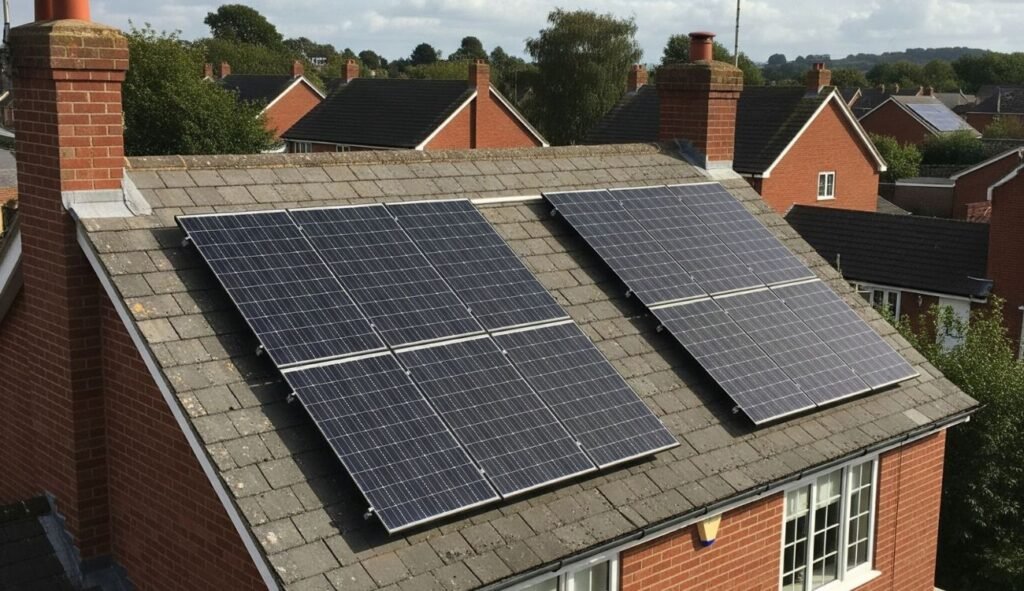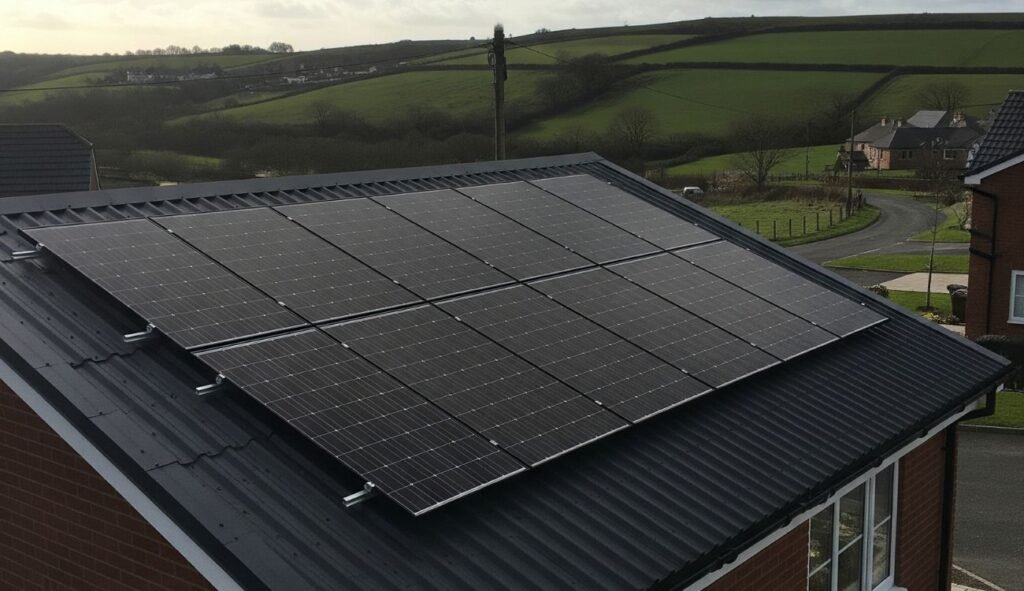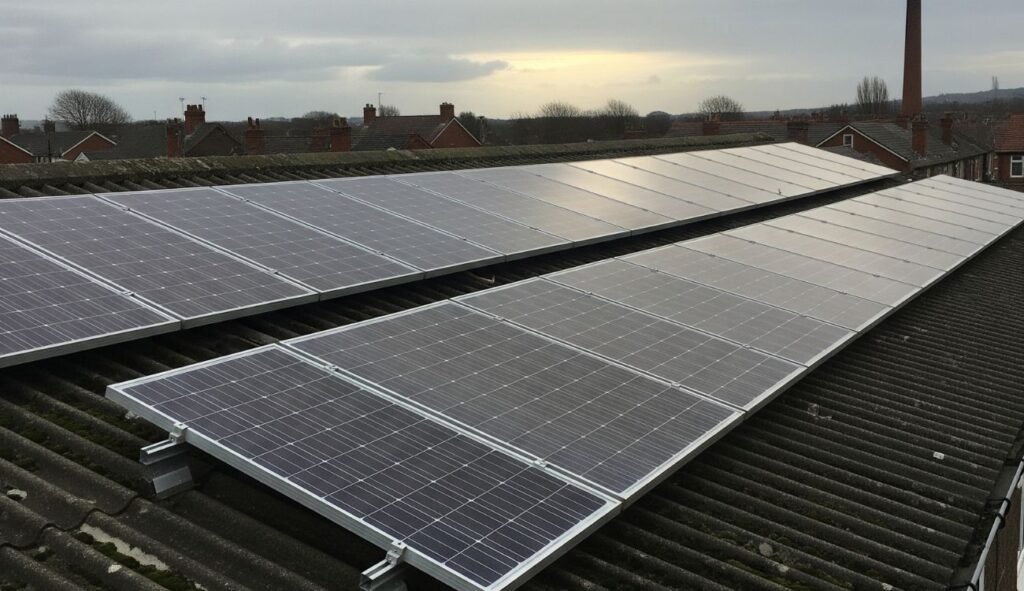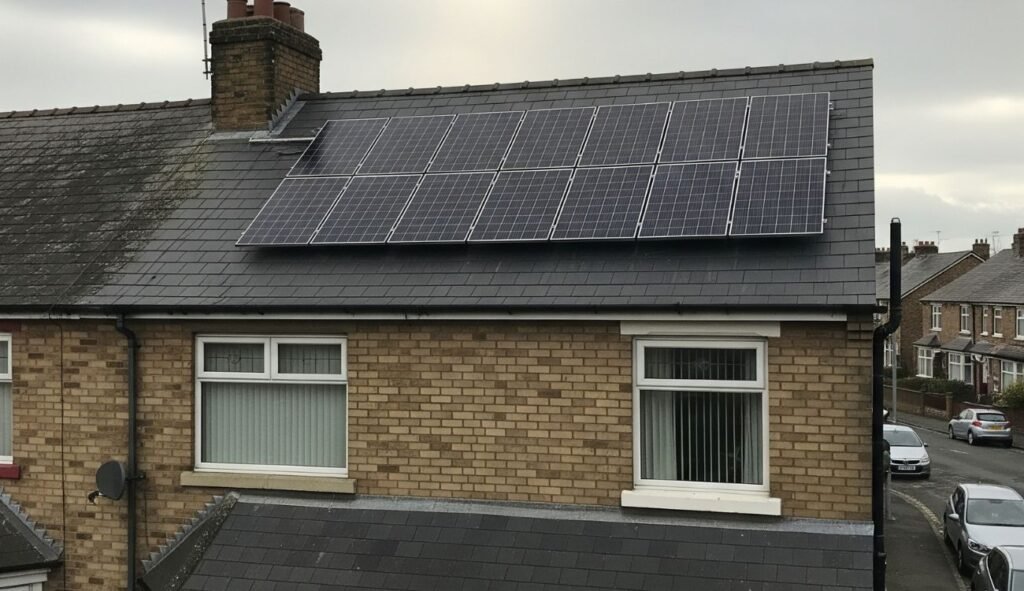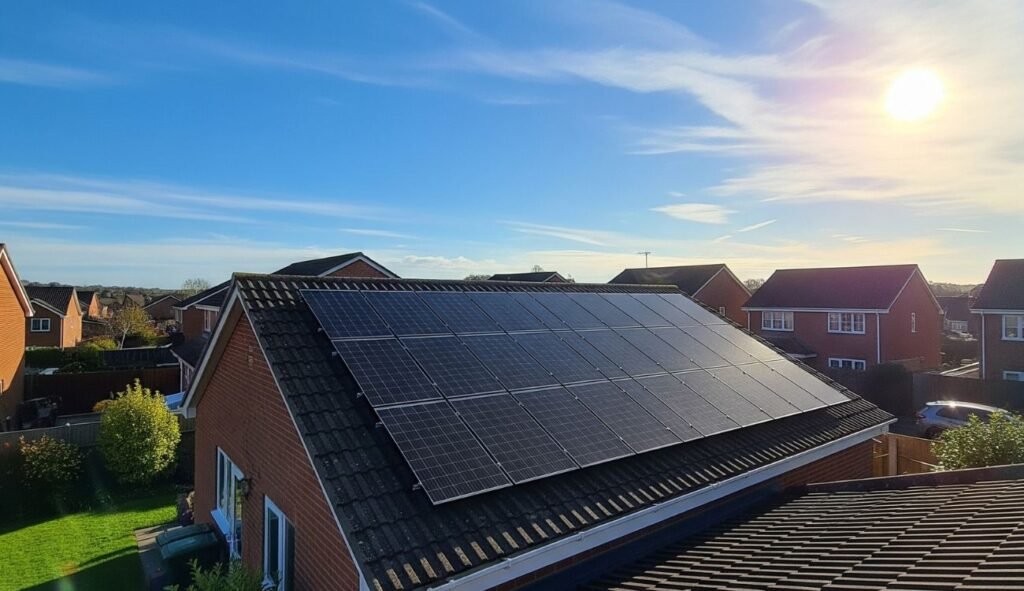Choosing the right solar panel installer is just as important as selecting the panels themselves. With government incentives like the Smart Export Guarantee (SEG) and ECO4 available in the UK, it’s essential to work with an installer who is qualified, reputable, and transparent.
Whether you’re a homeowner in Tyne & Wear, a landlord in Newcastle, or a business owner in the North East, this guide will help you make a confident, informed decision. In it, we’ll walk you through exactly how to choose the right solar panel installer, including what to look for, the right questions to ask, and the red flags to avoid.
What Should You Look for in a Solar Panel Installer?
Before signing a contract or paying a deposit, it’s essential to evaluate an installer’s credentials, experience, and ability to deliver a system that meets your needs. A quality solar installer in the UK will be certified, transparent, and familiar with the local environment and regulations.
Are They MCS Certified and TrustMark Registered?
MCS (Microgeneration Certification Scheme) certification isn’t optional — it’s essential. It ensures the installer meets robust industry standards and is a prerequisite for accessing government incentives like the SEG or ECO4 scheme.
TrustMark is the UK’s only government-endorsed quality scheme for tradespeople. An installer who is TrustMark registered demonstrates a commitment to customer protection and technical competence.
Without these accreditations, you could miss out on key financial benefits and legal protections.
Do They Have Experience with UK-Specific Solar Installations?
UK roofs come in all shapes — slate, tile, flat — and present different challenges. Add in local planning rules and famously unpredictable British weather, and it’s clear that experience in UK-specific conditions matters.
An experienced UK installer will:
- Know how to work with your specific roof type.
- Understand regional planning permissions.
- Design systems optimised for lower light levels.
Can They Offer a Bespoke Solution or Only Generic Packages?
Every home is different. A quality installer will assess:
- Your roof orientation and shading.
- Your energy usage patterns.
- Whether you need battery storage now or later.
If you’re considering storage, our breakdown of what size solar battery you might need can help you prepare better questions for your installer.
Beware of companies pushing “one-size-fits-all” packages. You need a system tailored to your needs, not theirs.
Are They Familiar with Battery Storage and Smart Export Guarantee (SEG)?
A modern solar installation should consider battery storage and SEG eligibility. Installers should:
- Advise on whether battery storage makes financial sense for you.
- Guide you through registering for the SEG, so you get paid for the electricity you export.
If they can’t explain these UK schemes clearly, walk away.
What Questions Should You Ask a Solar Installer Before Hiring Them?
Asking the right questions helps you identify reliable installers and avoid those who may cut corners. The answers can reveal whether they prioritise long-term value, customer service, and system performance, or just closing a sale.
What Is the Total Cost Breakdown, and What’s Included?
Request a fully itemised quote that includes:
- Panels, inverters, scaffolding, and labour.
- VAT (5% for domestic installs).
- Warranty terms and maintenance.
Avoid vague or overly broad estimates — transparency is key.
Future Heat provides fully itemised solar panel installation quotes for both residential and commercial properties across Tyne & Wear, Newcastle, and the wider North East. Our MCS-certified team ensures full transparency—no hidden costs, just expert advice and high-quality service. Request your detailed solar panel installation quote today.
Who Will Be Installing the System – Employees or Subcontractors?
If subcontractors are involved, ensure:
- They’re MCS certified.
- They’re covered under the installer’s warranty and insurance.
In-house teams generally offer more accountability and quality control.
What Warranties Do They Provide on Workmanship and Equipment?
A reputable installer should offer:
- 25-year performance warranty on panels.
- 5–10-year inverter warranty.
- 2–10-year workmanship warranty on installation.
Ask what happens if something fails — and how quickly they’ll respond.
How Can You Check a Solar Installer’s Reputation?
Do They Have Verified Reviews on Independent UK Platforms?
Look for verified reviews on:
- Trustpilot
- Google Reviews
- Checkatrade
- Which? Trusted Traders
Don’t rely solely on testimonials from their own site.
Can You See Case Studies or Previous Installations in Your Area?
Good installers will have:
- Before-and-after photos.
- Client video testimonials.
- Projects you can physically visit if you’re local.
This gives you confidence they’ve done similar work before — and done it well.
Are They Willing to Provide References from Past Clients?
Ask for the contact information of a recent customer willing to share their experience. A good company won’t hesitate — a bad one will.
How Do You Compare Quotes from Different Solar Installers?
A solar panel system is a long-term investment — you need to trust the company doing the work. Luckily, there are several ways to research an installer’s reputation before you commit.
Are You Comparing Like-for-Like Systems?
Make sure quotes match in:
- Panel brand, wattage, and number.
- Inverter type.
- Battery capacity (if included).
- Monitoring systems or extras.
You can’t compare prices if the specs aren’t equal.
Is the Cheapest Option Really the Best Value?
Cheap quotes can mean:
- Lower quality components.
- Poor aftercare.
- Less efficient systems that cost more in the long term.
Always weigh value over price.
What Financing or Incentives Do They Help You Access?
Installers should help you explore:
- SEG payments.
- ECO4 scheme eligibility.
- Council grants or green finance options.
The right installer will proactively help reduce your upfront cost.
What Red Flags Should You Watch Out For?
Unfortunately, not every solar installer operates with your best interests at heart. Being aware of common red flags can help you avoid poor-quality work, hidden costs, and costly mistakes.
Do They Pressure You into Signing Quickly?
High-pressure tactics = high risk. Reputable installers:
- Give you space to think.
- Offer valid quotes without expiry traps.
- Welcome to second opinions.
Are Their Claims Too Good to Be True?
Beware of:
- Overly optimistic payback periods.
- Guaranteed savings.
- Unrealistically low installation costs.
Always ask for the assumptions behind any “savings calculator.”
Do They Avoid Written Contracts or Skip Site Surveys?
No contract? No deal. A proper installer will:
- Conduct an in-person (or detailed virtual) site survey.
- Provide written T&Cs covering the full scope of work.
Should You Choose a Local or National Solar Installer?
Both local and national solar companies have pros and cons. Your ideal choice depends on your priorities — whether that’s service responsiveness, price, or availability. Understanding the differences will help you make the best choice for your home.
What Are the Advantages of a Local Solar Company?
- Faster response times.
- Personalised service.
- Strong local reputation to maintain.
They’re often more flexible with installation dates, too.
When Might a National Installer Be a Better Fit?
- Greater stock availability.
- Access to bulk pricing discounts.
- Structured processes and larger teams.
Ideal for larger or time-sensitive projects.
How to Balance Reputation, Pricing, and Proximity
Choose based on:
- Installer reviews.
- Quality of quote and components.
- Your comfort with their team.
Local or national — choose the one that ticks the right boxes.
How Important Is Post-Installation Support and Maintenance?
Your relationship with your solar installer shouldn’t end once the panels are on your roof. Post-installation support ensures your system performs well over time and that you have someone to turn to if issues arise.
Do They Offer Ongoing Monitoring or Maintenance Packages?
Some installers offer:
- App-based monitoring.
- Annual check-ups.
- Maintenance packages.
This ensures your system stays efficient and you catch faults early.
What Happens if There’s a Fault or You Need Help?
Ask:
- How quickly do they respond to issues?
- What’s their process for warranty repairs?
- Will you deal with a dedicated team?
Aftercare separates the great from the merely “good enough.”
Final Checklist Before You Choose Your Solar Installer
✅ MCS certified?
✅ Transparent quote?
✅ Solid warranty terms?
✅ Verified reviews?
✅ Battery storage knowledge?
✅ Site survey completed?
✅ Written contract?
Ready to Choose Your Installer? Here’s What to Do Next
If you’re ready to take the next step, Future Heat offers:
- Fully MCS-certified installations.
- Honest, no-pressure quotes.
- Trusted local teams with national-level resources.
Frequently Asked Questions (FAQs)
Most installations take 1–2 days, depending on system size.
In most cases, no — they’re permitted development. Exceptions include listed buildings and conservation areas.
Yes. A good installer will design a system that allows for future battery integration. If you’re planning for future upgrades, understanding what size solar panel is needed to charge a 100Ah battery is a great place to start.
YA solar retailer is a company or individual responsible for selling solar energy systems to customers. They provide advice on product options, system sizing, pricing, and financing. In many cases, they also handle the overall project management, including organizing installation and ensuring compliance with local regulations. A solar installer, on the other hand, is the professional or team that physically installs the solar panels and related components on your property. They work with the retailer to carry out the technical aspects of the job, including wiring, mounting, and connecting the system to your electrical setup. In some cases, a single company may act as both the retailer and installer, offering a full-service solar solution from consultation to installation.
No, not just any electrician can legally install solar panels in the UK. While a qualified electrician may understand the electrical aspects of the system, solar panel installation requires specific training, certification, and compliance with industry standards. To install solar panels that are eligible for government incentives like the Smart Export Guarantee (SEG), the installer must be MCS (Microgeneration Certification Scheme) certified. MCS certification ensures the installer meets strict technical standards and that your system will be eligible for export payments and warranties. For safety, performance, and compliance with UK regulations, it’s essential to hire a certified solar installer with experience in renewable energy systems—not just a general electrician.
Our Verdict
Choosing a solar installer is a big decision, but it doesn’t need to be overwhelming. Focus on experience, transparency, and certifications. Ask the right questions. Check real reviews. And trust your instincts. The right installer won’t just fit your panels — they’ll help power your future.
Jamie Maguire is Managing Director at Future Heat Ltd, the UK-based renewable energy company specialising in heat pumps, solar panels and energy-efficient boiler solutions. He leads the company’s strategic vision to decarbonise homes and businesses across the UK by delivering innovative, sustainable heating and power systems. Jamie is passionate about shaping the future of energy, supporting communities and empowering teams of skilled engineers to deliver lasting value and carbon reductions nationwide.


